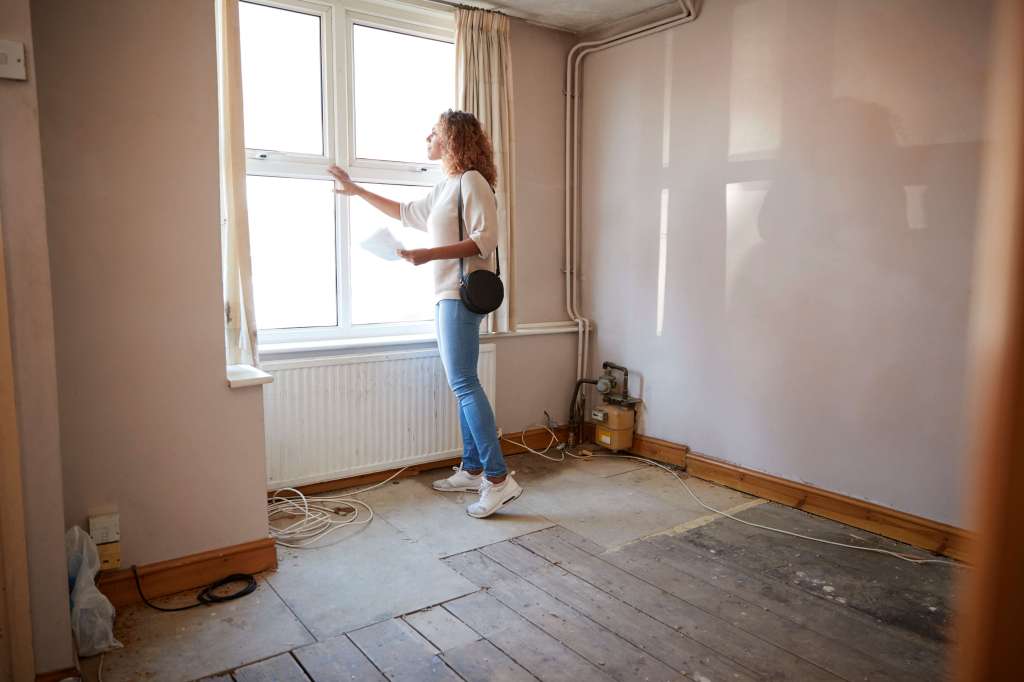Each year, there are a number of new buy-to-let tax changes landlords should be aware of.
And with 35 per cent of landlords saying rising taxes are one of their greatest challenges, according to Simply Business research, it’s crucial to keep up to date with the latest tax rules so you can manage your finances accordingly.
From income tax rates and stamp duty discounts, to capital gains tax and furnished holiday lets tax changes, here’s a run-down of what to watch out for this year.
5 new tax rules for buy-to-let landlords
Here’s an overview of all the tax rules and changes landlords need to be aware of in 2024:
- Buy-to-let income tax rates 2024
- Capital gains tax changes
- Changes to furnished holiday lets tax
- Stamp duty discount still available
- Latest on Making Tax Digital
1. Buy-to-let income tax rates 2024
So what exactly are the individual income tax rates and bands for 2024-25? Your personal allowance is the amount you can earn before you start paying income tax.
Currently this is £12,570, and it’s been frozen until 2028.
For the 2024-25 tax year, landlords will pay 20 per cent tax on buy-to-let income between £12,571 and £50,270.
The higher rate threshold for rental income is £50,271, which is the point at which you start paying 40 per cent tax on your profits over this threshold.
The additional rate (45 per cent) threshold is £125,001 and above.
This buy-to-let tax calculator from Commercial Trust can give you an idea of how much your next tax bill could be.
Read more: How to do a landlord tax return – a 6-step guide
2. Changes to capital gains tax
When landlords sell a property, they usually have to pay capital gains tax (CGT). The CGT allowance is the amount you don’t have to pay tax on, and it’s been reduced significantly in recent years.
In April 2023, the capital gains tax (CGT) allowance was reduced from £12,300 to £6,000.
And from 6 April 2024, it will be halved again from £6,000 to £3,000.
This means that when landlords sell their properties, their capital gains tax bill will be higher.
Our research found that 38 per cent of landlords consider the reduction of the CGT allowance to be a significant challenge.
CGT cut for higher rate taxpayers
In 2023, one in four landlords told us they were looking to sell a property in the next 12 months. As a result, many will have been getting up to speed with capital gains tax rates.
Announced as part of the Spring Budget, from 6 April 2024 the capital gains tax rate for higher and additional rate taxpayers selling residential property will drop from 28 per cent to 24 per cent.
What do these changes mean for landlords?
Although a cut in the higher rate of CGT may seem positive, any benefits will be offset by the reduction of the personal allowance.
On its own, the tax cut would save the average higher rate tax paying landlord £3,800 when they sell a property, according to research by estate agency Hamptons.
However, the lower CGT allowance of £3,000 will add an average of £454 (around four per cent) to a higher rate tax paying landlord who sells a property.
The reduction of the personal allowance from 6 April means that the average lower rate tax paying landlord will pay an extra £1,674 when they sell a property.
Read more: Capital gains tax changes – how much could they cost landlords?
3. Furnished holiday let tax benefits to be scrapped
Another Spring Budget announcement, the furnished holiday lets tax system will be scrapped from 6 April 2025.
According to the Chancellor Jeremy Hunt, this measure is intended to “level the playing field” between holiday home owners and long-term landlords.
Currently, owners of furnished holiday lets – homes that are available to rent or booked throughout the year and well furnished – have a range of tax incentives.
These include:
- being able to offset holiday let mortgage interest against annual profits
- claiming for ‘capital allowances’, such as furniture that improves the property
- using Business Asset Disposal Relief to pay a lower CGT rate when selling a property
Read more: Furnished holiday let tax: a simple guide
4. Landlords can still benefit from stamp duty cut
In September 2022’s mini-Budget, a stamp duty cut was announced. The threshold for property buyers increased from £125,000 to £250,000.
Before the reduction, landlords and property investors had to pay a stamp duty rate of three per cent on properties bought for £125,000 or less and five per cent on properties between £125,001 and £250,000.
Thanks to the stamp duty cut, they pay a flat rate of three per cent on all purchases up to £250,000 allowing them to make some savings.
Stamp duty rates are set to return to normal from 1 April 2025, meaning landlords buying cheaper properties will no longer benefit from a discount.
You can use the government’s stamp duty calculator to work out how much tax you’d need to pay when buying a rental property.

Monkey Business/stock.adobe.com
5. What’s the latest on Making Tax Digital?
Making Tax Digital (MTD), the government’s initiative to make all tax returns digital, has faced a number of delays in recent years.
It was originally due to be introduced for all Self Assessment taxpayers in 2023, but is now set for 2026 following two separate delays.
As a result, landlords who earn more than £50,000 a year will have to submit their tax returns using Making Tax Digital compatible software from 6 April 2026.
Landlords who earn between £30,000 and £50,000 will need to start submitting via MTD from 6 April 2027.
And for those earning under £30,000 a year, it’s still not clear when you’ll need to submit tax returns using MTD software – if at all.
Making Tax Digital has been in place for all VAT-registered businesses since 2022.
What about other buy-to-let regulation changes?
As well as tax changes, there are further updates to regulations that landlords should know about for 2024:
- rental reforms, including ending Section 21 evictions, are still going through parliament, but it remains to be seen whether they’ll become law before the general election
- from summer 2024, property owners who want to rent out a holiday let will need planning permission and a mandatory registration scheme will be introduced
How do you feel about buy-to-let tax changes in 2024? Let us know in the comments below.
Guides for buy-to-let landlords
- How to get a buy-to-let mortgage: a simple guide
- A guide to buying property at auction
- Best buy-to-let areas
- What is landlord insurance?
Get set with tailored landlord cover
Over 200,000 UK landlord policies, a 9/10 customer rating and claims handled by an award-winning team. Looking to switch or start a new policy? Run a quick landlord insurance quote today.
Photograph: VadimGuzhva/stock.adobe.com

This block is configured using JavaScript. A preview is not available in the editor.